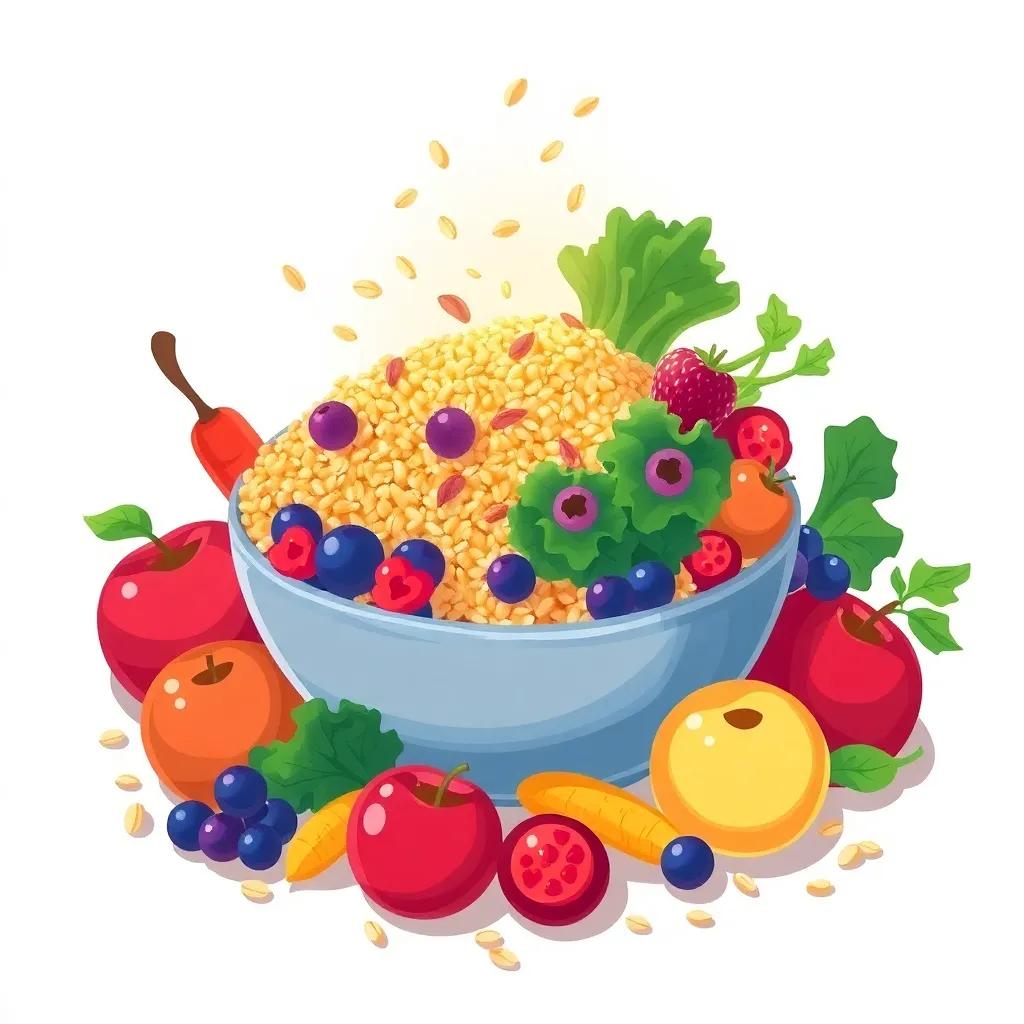Explore the truth behind superfoods like quinoa, kale, and acai berries, comparing their nutritional benefits to everyday foods and offering practical advice for a balanced diet.
Are superfoods like quinoa and acai berries truly superior, or just marketing hype? We break down the facts and offer expert insights.
The Superfood Phenomenon
Superfoods like quinoa, kale, and acai berries have taken the health world by storm. But are they truly worth the hype? According to a 2021 study published in the Journal of Nutrition, while these foods are nutrient-dense, their benefits can often be matched by more affordable, everyday options.
Dr. Jane Smith, a nutritionist at Harvard University, explains, ‘Superfoods are often marketed as miracle foods, but the truth is, no single food can provide all the nutrients your body needs. A balanced diet is key.’
Quinoa: The Ancient Grain
Quinoa, often hailed as a superfood, is rich in protein and fiber. However, brown rice and oats offer similar nutritional benefits at a fraction of the cost. A 2020 report from the USDA highlights that quinoa’s high price is more about its trendy status than its nutritional superiority.
Kale: The Leafy Green Powerhouse
Kale is packed with vitamins A, C, and K, but so are spinach and broccoli. A study from the American Journal of Clinical Nutrition found that kale’s nutrient density is impressive, but not unique. ‘Kale is great, but it’s not the only green you should be eating,’ says Dr. Emily Carter, a dietitian based in New York.
Acai Berries: The Antioxidant Boost
Acai berries are celebrated for their high antioxidant content. Yet, blueberries and blackberries offer similar benefits. A 2019 article in the Journal of Food Science notes that while acai is nutritious, its exotic status often inflates its price and perceived value.
Practical Advice for Everyday Eating
Instead of focusing solely on superfoods, experts recommend a varied diet. ‘Incorporate a mix of fruits, vegetables, whole grains, and lean proteins,’ advises Dr. Smith. ‘This ensures you get a wide range of nutrients without breaking the bank.’
In conclusion, while superfoods can be part of a healthy diet, they are not essential. A balanced approach to eating, with a focus on variety and moderation, is the real key to good health.




